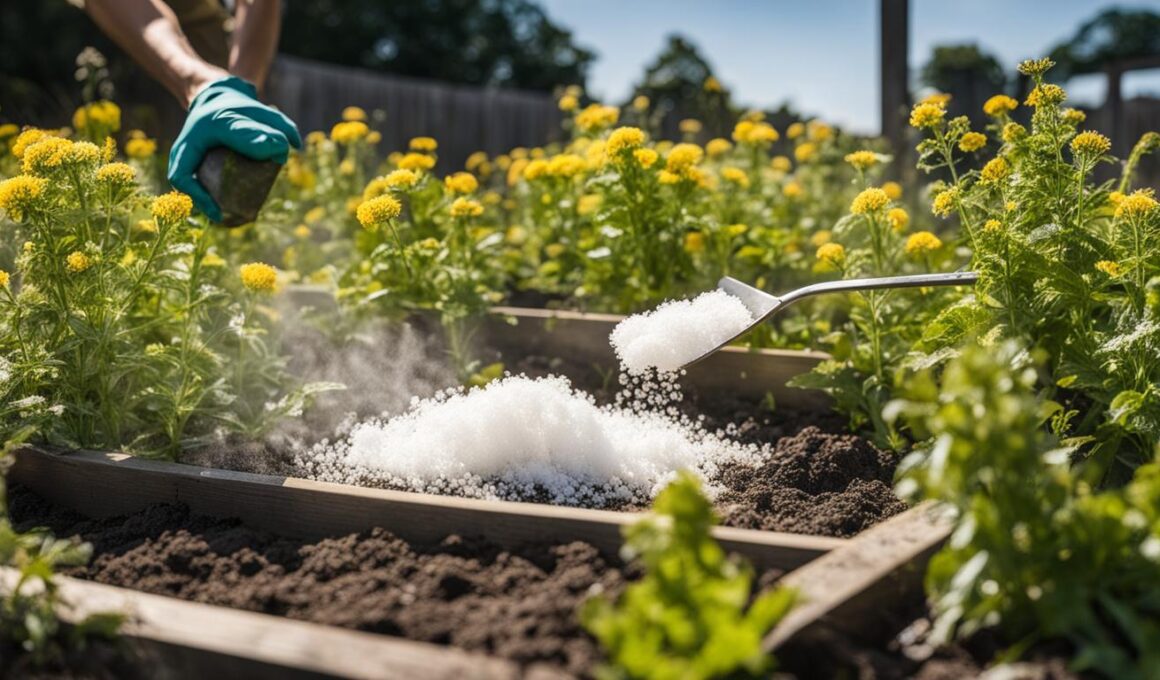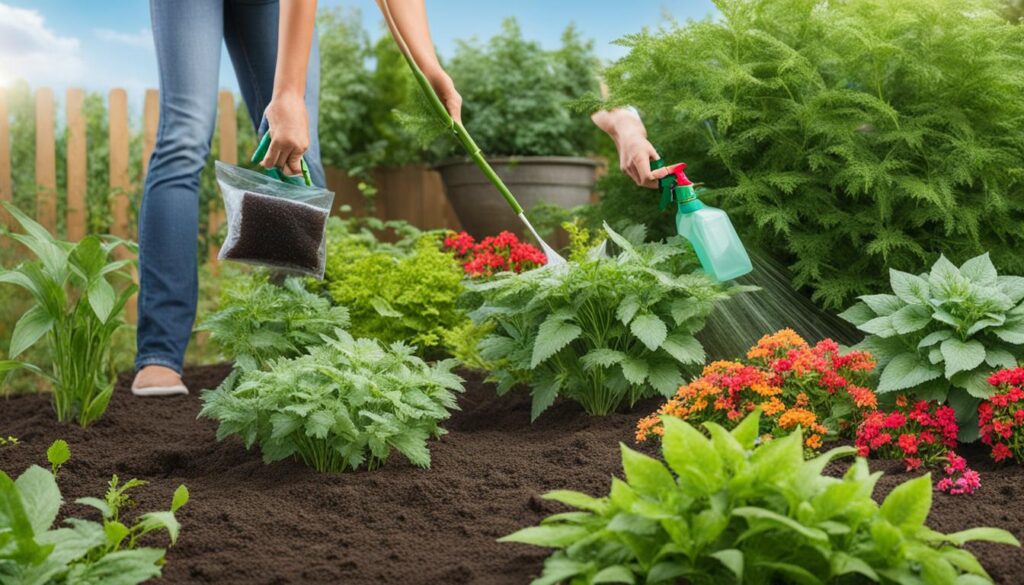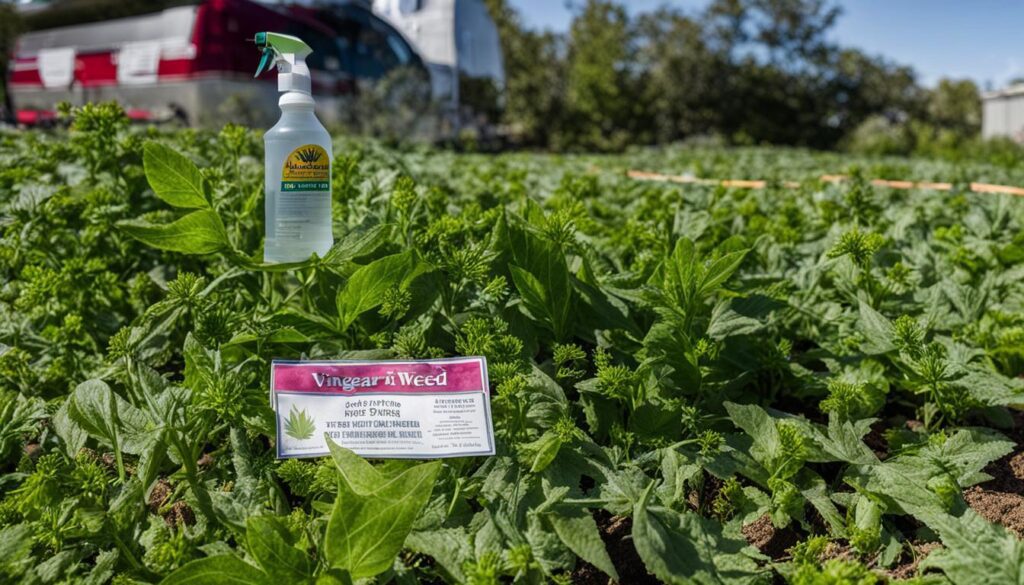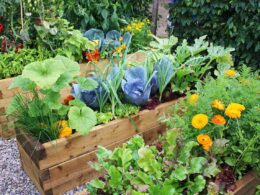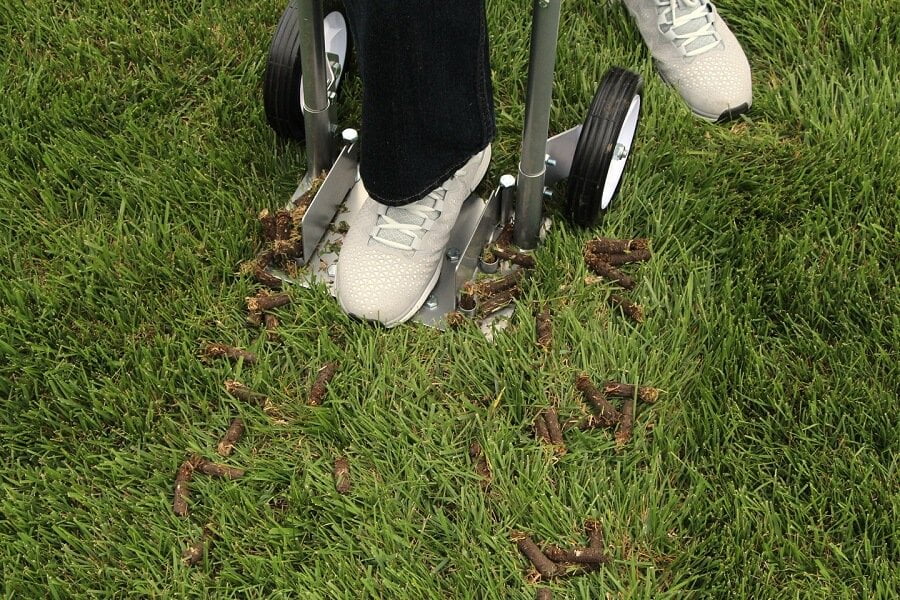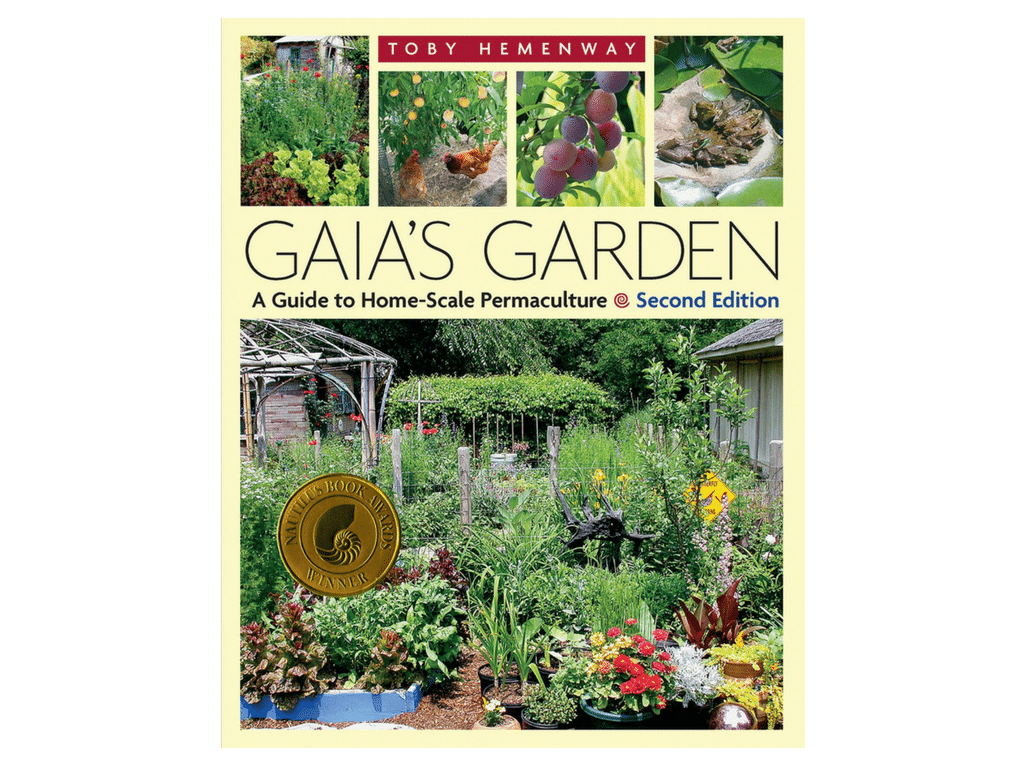Epsom salt is often mentioned as a potential natural weed killer, but it is important to understand the facts before using it in your garden. While some people claim that a mixture of vinegar, Epsom salt, and dish soap can effectively kill weeds, the reality is that natural weed killers like this are not as effective as chemical weed killers. Chemical weed killers like Roundup and Weed B-Gon have the ability to kill weeds down to the root, preventing them from growing back.
Natural weed killers, on the other hand, only kill the top growth of the weeds, allowing them to regrow from the roots. Additionally, Epsom salt is typically used as a fertilizer and can actually help plants grow better rather than killing them. It is important to weigh the pros and cons of using Epsom salt as a weed killer and understand that it may not provide the desired results.
Post Summary
- Epsom salt is often mentioned as a natural weed killer, but it is not as effective as chemical weed killers.
- Chemical weed killers can kill weeds down to the root, preventing regrowth.
- Natural weed killers only kill the top growth of weeds, allowing them to regrow from the roots.
- Epsom salt is typically used as a fertilizer and can actually help plants grow better.
- Consider the pros and cons of using Epsom salt as a weed killer and explore alternative options.
Myths About Homemade Weed Killers
There are several myths surrounding homemade weed killers, particularly the use of a vinegar and salt solution. Some people believe that spraying this mixture on weeds can effectively kill them. While it may stop the top growth of certain weeds like Canada thistle, it can take days for the roots to die off completely. Boiling water is another commonly suggested homemade weed killer, but it may not be enough to kill larger or hardier weeds. It is important to understand the limitations of these homemade weed killers and consider other options for more effective weed control.
Myth: Vinegar and salt solution is an effective weed killer.
“While this solution may stop the top growth of weeds like Canada thistle, it may take days for the roots to die off completely.”
Myth: Boiling water can effectively kill all types of weeds.
“While pouring boiling water on small weeds can be effective, it may not be enough to kill larger or hardier weeds.”
When it comes to weed control, it is important to understand the limitations of homemade weed killers. While these solutions may provide some temporary relief, they may not completely eliminate weeds or prevent them from regrowing. For more effective weed control, it is recommended to explore other options such as chemical weed killers or integrated pest management strategies.
| Myth | Reality |
|---|---|
| Vinegar and salt solution is an effective weed killer. | While this solution may stop the top growth of weeds like Canada thistle, it may take days for the roots to die off completely. |
| Boiling water can effectively kill all types of weeds. | While pouring boiling water on small weeds can be effective, it may not be enough to kill larger or hardier weeds. |
The Potential Hazards of Homemade Weed Killers
Homemade weed killers may seem like a safer and more natural alternative to chemical herbicides, but they can still pose potential hazards. It is important to be aware of the risks associated with using certain ingredients in homemade weed killer recipes. Here are some common hazards to consider:
Hazard 1: Copper Nails
Using copper nails as a weed killer may require a large number of nails to be effective, which can be costly and potentially harmful to the tree. Copper can leach into the soil and harm beneficial microorganisms, disrupting the natural balance of the ecosystem. It is important to be mindful of the potential damage that copper nails can cause to both plants and the environment.
Hazard 2: Table Salt
Table salt is another common ingredient in homemade weed killers, but it can have long-term negative effects on the soil. Salt can remove moisture from the soil, making it difficult for plants to absorb water and nutrients. It can also build up in the soil over time, preventing anything from growing in that spot in the future. It is important to avoid using table salt as a weed killer to protect the health of your soil and its ability to support plant growth.
Hazard 3: Boiling Water
While pouring boiling water on small weeds may be effective, it can be dangerous to handle and may not be enough to kill larger or hardier weeds. Boiling water can also pose safety risks for the person applying it, as it can cause burns if not handled properly. It is important to exercise caution when using boiling water as a weed killer and consider alternative methods that are safer and more effective.
Hazard 4: Vinegar
Vinegar is a common ingredient in homemade weed killers, but it can be harmful to humans and animals if not used properly. Horticultural vinegar, which has a higher concentration of acetic acid than kitchen vinegars, can be a potent herbicide. However, it should be used with caution and according to label instructions. Improper use of vinegar can damage plants and harm the surrounding environment. It is important to follow recommended guidelines and use vinegar responsibly as a weed killer.
| Hazard | Description |
|---|---|
| Copper Nails | Using copper nails as a weed killer can be harmful to plants and disrupt the ecosystem. |
| Table Salt | Using table salt as a weed killer can damage the soil and prevent future plant growth. |
| Boiling Water | Boiling water can be dangerous to handle and may not effectively kill larger or hardier weeds. |
| Vinegar | Improper use of vinegar as a weed killer can harm plants and the environment, and pose risks to humans and animals. |
The Role of Soap in Weed Killers
Soap, particularly dish soap, is often recommended as an additive in homemade weed killers. Soap acts as a surfactant, helping the vinegar or other active ingredients stick to the leaves of the weeds. However, it is important to note that soap can have its own risks and negative impacts on the environment. Soap can harm fish and frogs when it enters waterways, making it difficult for them to breathe and damaging their skin and gills. It is crucial to only use approved, fish-safe surfactants when adding soap to weed killers. Soap should only be used for washing or bubble-making purposes and kept far away from natural water sources.
“Using soap as a surfactant in weed killers can improve their effectiveness by helping the solution adhere to the leaves of the weeds,” says Dr. Jane Green, an environmental scientist. “However, it’s important to recognize that soap can have negative consequences if not used responsibly. It’s crucial to choose environmentally friendly surfactants and avoid contaminating natural water sources.”
When using soap in weed killers, it’s essential to follow these guidelines:
- Choose a fish-safe surfactant approved for use in herbicides.
- Avoid using excessive amounts of soap, as this can increase the risk of negative impacts on the environment.
- Keep the weed killer mixture away from ponds, streams, and other natural water sources to prevent contamination.
- Dispose of any unused weed killer mixture responsibly, following local guidelines for hazardous waste disposal.
By using soap responsibly and considering its potential environmental impacts, you can incorporate it as a surfactant in homemade weed killers without causing harm to aquatic life and the environment.
| Pros of Using Soap in Weed Killers | Cons of Using Soap in Weed Killers |
|---|---|
| Improves the adherence of weed killer solution to leaves | Potentially harmful to fish and aquatic life |
| Can increase the effectiveness of homemade weed killers | May require using approved, fish-safe surfactants |
| Easy to find and inexpensive | Should be used in moderation to minimize environmental impact |
Using Epsom Salt as a Fertilizer
Epsom salt, also known as magnesium sulfate, is commonly used as a fertilizer in gardening. It provides two essential nutrients for plants – magnesium and sulfur. Magnesium is crucial for photosynthesis, chlorophyll production, and the overall growth and development of plants. Sulfur, on the other hand, is important for the formation of proteins, enzymes, and vitamins in plants. By incorporating Epsom salt into your gardening routine, you can ensure that your plants receive these essential nutrients for optimal growth.
Using Epsom salt as a fertilizer is relatively easy. Simply dissolve it in water according to the package instructions and apply it to your plants’ soil or foliage. The magnesium and sulfur ions will be readily absorbed by the plants, promoting healthy growth and enhancing their ability to withstand certain environmental stressors. It is particularly beneficial for plants like roses, tomatoes, and peppers, which have high magnesium requirements.
However, it is important to note that Epsom salt should not be mistaken for a weed killer. While it provides nutrients to plants, it does not have the same properties as chemical weed killers that can kill weeds down to the root. Using Epsom salt as a weed killer may actually encourage weed growth rather than eliminate them. Therefore, it is crucial to understand the intended use of Epsom salt and not confuse it as an effective weed control method.
The Effectiveness of Vinegar as a Weed Killer
Vinegar, specifically acetic acid, is often considered a natural and effective weed killer. It works by destroying the proteins that make up plant cells, leading to their demise. However, the effectiveness of vinegar as a weed killer depends on its concentration. Common kitchen vinegars like white and cider vinegar have a low concentration of acetic acid (around 5%) and are not strong enough to completely kill established weeds.
On the other hand, horticultural vinegars, which have a higher concentration of acetic acid (around 20%), are labeled as herbicides and can be more effective in weed control. When using horticultural vinegar, it is important to follow the label instructions carefully to ensure safe and effective application. It’s worth noting that vinegar acts as a contact herbicide, meaning it only kills or damages the part of the plant it comes into contact with and is not transported to other parts of the plant.
Vinegar, specifically acetic acid, is known for its ability to kill plants by destroying the proteins that make up cells.
While vinegar can be effective for smaller weeds without deep root systems or for preventing stump-sprouting on recently cut trees, it may not be enough to completely eliminate larger or hardier weeds. It is crucial to consider the specific characteristics of the weeds you are dealing with and choose the most appropriate weed control method accordingly. Consulting with professionals or referring to reliable resources can provide valuable guidance in selecting the right approach.
| Vinegar Concentration | Effectiveness as a Weed Killer |
|---|---|
| 5% | Not strong enough to kill established weeds |
| 20% | More effective in weed control |
Overall, vinegar can be a useful tool in weed control, particularly when used in combination with other integrated pest management methods. However, it is important to understand its limitations and use it appropriately to achieve the desired results.
The Risks and Limitations of Homemade Weed Killer Combinations
Many garden enthusiasts turn to homemade weed killer combinations in search of a more effective solution. One popular combination involves using vinegar and Epsom salt as key ingredients. However, it is important to note that there is no evidence to suggest that these combinations work better than using the most effective ingredient alone. In fact, combining ingredients may dilute the effectiveness of each individual component.
Table: Risks and Limitations of Homemade Weed Killer Combinations
| Ingredients | Risks | Limitations |
|---|---|---|
| Vinegar | Vinegar can harm plants if not used properly. Horticultural vinegar, in particular, can be harmful to humans and animals. | Vinegar acts as a contact herbicide, meaning it only affects the part of the plant it comes into contact with. It may not effectively target weeds with deep root systems. |
| Epsom Salt | Epsom salt is typically used as a fertilizer and can actually promote plant growth rather than killing weeds. | Epsom salt may not provide the desired results when used as a weed killer. Its effectiveness is limited in controlling weeds. |
When considering homemade weed killer combinations, it is crucial to understand that there is no magic formula that guarantees enhanced effectiveness in weed control. Each ingredient has its own risks and limitations, and combining them may not yield the desired results. It is important to explore alternative weed control methods and consult with professionals to ensure safe and effective weed control in your garden or outdoor spaces.
Safe and Effective Weed Control Methods
When it comes to weed control, there are safe and effective methods that you can use to maintain a healthy garden or outdoor space. While chemical weed killers are often considered a go-to option, it’s important to explore alternative approaches that prioritize the health of your plants and the environment. Integrated pest management (IPM) is one such method that combines various strategies to control weeds while minimizing the use of chemicals.
IPM involves a holistic approach to weed control, focusing on prevention, monitoring, and targeted interventions. By implementing physical barriers, such as mulching or installing landscape fabric, you can prevent weed seeds from germinating and taking root. Regular monitoring and timely removal of weeds can help contain their spread and reduce competition with your desirable plants. Mechanized methods, such as manual pulling or using a weeding tool, can be effective for removing weeds from small areas or between plants.
“Integrated pest management (IPM) is a sustainable and environmentally friendly approach to weed control that relies on a combination of physical, cultural, mechanical, and biological methods.”
| Safe and Effective Weed Control Methods | Advantages |
|---|---|
| Integrated Pest Management (IPM) |
|
| Cultural Practices |
|
| Physical and Mechanical Controls |
|
In addition to IPM, cultural practices can also play a role in effective weed control. These practices involve creating conditions that promote the health and vigor of your desired plants, making it difficult for weeds to establish and thrive. Examples of cultural practices include proper watering, fertilizing, and regular maintenance. By maintaining healthy plants and encouraging dense growth, you can naturally suppress weed growth.
It’s important to note that while chemical weed killers can be effective, they should be used sparingly and according to the label instructions. When choosing herbicides, opt for selective herbicides that target specific types of weeds, minimizing harm to non-target plants. Always follow proper application techniques and use personal protective equipment to ensure your safety and the safety of the environment.
By incorporating safe and effective weed control methods into your gardening routine, you can maintain a healthy and thriving garden while minimizing the impact on the environment. Consider the specific needs of your plants, the size of your garden, and the resources available to you. Remember, a proactive and holistic approach to weed control will yield the best results in the long run.
Importance of Proper Weed Control
Proper weed control is crucial for maintaining a healthy garden or outdoor space. Weeds can pose a significant threat to the growth and productivity of desirable plants, as they compete for essential resources such as nutrients, water, and sunlight. By implementing effective weed control measures, you can prevent weed competition and ensure that your desired plants have the best chance to thrive.
Weeds not only hinder the growth of desirable plants but also detract from the overall aesthetic appeal of your garden. They can create a sense of disarray and make your outdoor space look unkempt. By keeping weeds under control, you can enhance the visual appeal of your garden and create a more organized and inviting environment.
“Weeds compete with desirable plants for nutrients, water, and sunlight, which can hinder their growth and reduce their overall health and productivity.”
Preventing weed competition also helps reduce the need for constant maintenance and manual weeding. When weeds are left unchecked, they can quickly spread and take over your garden, requiring frequent and labor-intensive efforts to remove them. By implementing proper weed control measures, you can save time, effort, and resources in the long run.
Overall, proper weed control is essential for maintaining a healthy garden, preventing weed competition, and promoting the growth and beauty of your desired plants. By employing effective weed control methods, you can create a flourishing outdoor space that you can enjoy and be proud of.
Conclusion
In conclusion, when it comes to effective weed killers, it is important to consider the pros and cons of different options. While homemade weed killers may seem like a natural and cost-effective solution, they often have limitations and potential hazards. Chemical weed killers, when used correctly and according to label instructions, can provide more reliable and long-lasting results in weed control.
When considering homemade weed killers, it is crucial to understand that combinations of ingredients may not enhance their effectiveness. In fact, combining ingredients may dilute the potency of each individual component, ultimately reducing their weed-killing capabilities.
To ensure safe and effective weed control, it is recommended to explore alternative methods such as integrated pest management and consult with professionals. This approach takes into consideration the specific needs and characteristics of your garden or outdoor space, providing a comprehensive strategy for weed control.
By considering the pros and cons, understanding the limitations and potential hazards, and exploring alternative weed control methods, you can make informed decisions to maintain a healthy garden and effectively manage weeds in your outdoor spaces.
Can Epsom Salt also be used as a natural bug repellent in addition to killing weeds?
Yes, Epsom salt can enhance bug-a-salt power as a natural bug repellent. It can be used in addition to killing weeds to keep bugs at bay. Sprinkle it around outdoor areas to deter pests without the use of harsh chemicals.
FAQ
Is Epsom salt an effective natural weed killer?
No, Epsom salt is not an effective weed killer. It is usually used as a fertilizer and can actually help plants grow better.
Can homemade weed killers like vinegar and salt solution effectively kill weeds?
While vinegar and salt solutions may stop the top growth of weeds, it may take days for the roots to die off completely.
Are there any potential hazards of using homemade weed killers?
Yes, homemade weed killers can pose hazards such as copper nails being harmful to trees, table salt permanently damaging soil, boiling water being a safety risk, and vinegar being harmful if not used properly.
What is the role of soap in weed killers?
Soap acts as a surfactant, helping the weed killer stick to the leaves of the weeds.
Is Epsom salt only used as a weed killer?
No, Epsom salt is commonly used as a fertilizer and can help plants grow better.
Is vinegar an effective weed killer?
Vinegar can be effective for smaller weeds, but it depends on its concentration. Common kitchen vinegars may not be strong enough to completely kill established weeds.
Do homemade weed killer combinations work better than individual ingredients?
There is no evidence to suggest that combining ingredients in homemade weed killers enhances their effectiveness.
What are some safe and effective weed control methods?
Chemical weed killers, when used correctly, and integrated pest management, which combines different methods, can provide effective weed control.
Why is proper weed control important?
Proper weed control helps prevent weed competition, promotes the growth of desired plants, and improves the overall appearance and function of outdoor spaces.
What should be considered when using weed killers?
When using weed killers, it is important to weigh the pros and cons and consider the specific needs of your garden or outdoor space.





